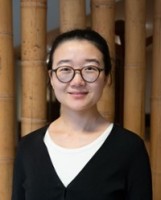Chair in Financial Market Risk by Lily FANG
Finance with a social twist: looking at impact beyond markets
Responsible investing, which incorporates environmental, social, and governance (ESG) criteria into investment decisions, has been gaining increasing attention from investors and is slowly moving into the mainstream. The rise of ESG has brought into the spotlight the financial relevance of a wide spectrum of issues that were traditionally ignored by financial analysts. This includes the pressing topic of environmental concerns, as well as social issues related to fairness, workers’ wellbeing, etc. Consistently with this shift in mindset, academic finance research has been putting increasing emphasis on cross-disciplinary analysis. “Topics are much broader than they were 20 years ago”, says Lily Hua Fang, a Professor of Finance, and the current holder of the AXA Chair in Financial Market Risk at INSEAD. “The academic field is changing for the better, it is moving away from strictly classical approaches to encompass broader societal issues”. This broadening is, to a large extent, reflected in the work Professor Fang has been conducting since 2003 at INSEAD. Lily Fang is currently working on issues related to gender, corruption, social impact of private equity, the influence of investors’ preferences on companies, or the role of insurance on entrepreneurship. Her paper on media coverage and the cross-section with stock returns received the prestigious Smith Breeden prize for outstanding papers published in the Journal of Finance.
“Socio and economic issues are hot topics in Finance now. They are reflections of the challenges we face in the real world. Our role as researchers is to understand the mechanisms at play, to create knowledge of what has an impact on what, explains prof. Lily Fang. “There is still significant skepticism about the value of this type of approach in the finance world, but I actually think that by tackling social issues this way, we can expect high impact. The capital market plays a huge role in society and constitutes a powerful lever for change. If we can shed light on the beneficial or harmful consequences of certain behaviors, help investors make informed decisions, then we are delivering messages that are extremely important.” This broader approach earned prof. Lily Fang enthusiastic support from the AXA Research Fund. “I’m going very much in the same direction they are. I feel energized by their endorsement of my research ideas.”
Business as a force for good
Prof. Fang has been pursuing research on the role of insurance in the development of entrepreneurship. Her other projects also examine the positive role business can have on society – business as a force for good, which also alogns with Insead’s recent Corporate Responsibility Initiative with the Hoffman Foundation. One of her most recent papers, addresses the topic of gender among Wall Street analysts, highlighted discrepancies in the way men and women are treated in this environment. Specifically, it shows that men reap higher returns from alumni connections with corporate boards than women, or in other words, that investors are more willing to rely on soft information such as connections to evaluate men than women. Among her most mature projects, there is also a study that looks at how corruption in China affects government subsidies in innovation.
More recently, Pr. Fang has been investigating the impact of private equity investment on workers, their salaries and their position as well as on gender discrimination. “It’s a very broad study. We are using French administrative datasets, which are unique in their coverage and depth, to answer questions that are previously unanswered.” In a similar vein, another of her on-going ideas is to look at investor welfare as opposed to shareholder value. Specifically, the objective is to look at how investor preferences can influence factors such as ESG and can then create incentives for business managers to integrate ESG and ultimately improve society. In fact, Pr. Fang is pursuing an entire research program that examines ESG considerations and firm operations, supply chain management and ultimately financial performance while continuing work on “classic” Finance topics such as Market Risk. “Passive investing has been the hottest investment trend for a while now. We have a project that aims to show that, while this can be very positive, there is a possible downside to it. If everyone does it, the market could become volatile.”
The work professor Lily Fang has been conducting as AXA INSEAD Chair in Financial Market Risk is related to her primary and classical research interests, namely financial market information and investment strategies. However, as she puts it herself, her current projects “go beyond” to address the complexity of today’s financial environment and its large socio-economic ramifications.
The succession of the AXA Chair in Financial Market Risk will be assumed by Frederico BELO effective from September 1, 2024.
Discover research projects related to the topic
Societal Challenges
Artificial Intelligence & Emerging Technologies
Civil Society & Governance
Polarization & Social Divides
Ethical AI & Responsible Innovation
Post-Doctoral Fellowship
Hong Kong
Impact of Misinformation & Mistrust on Environmental Issues & Democracy: A Comparative Study
Environmental disasters and the way information about them is shared can affect how well democracy works and how people get... Read more

Minos Athanasios
KARYOTAKIS

